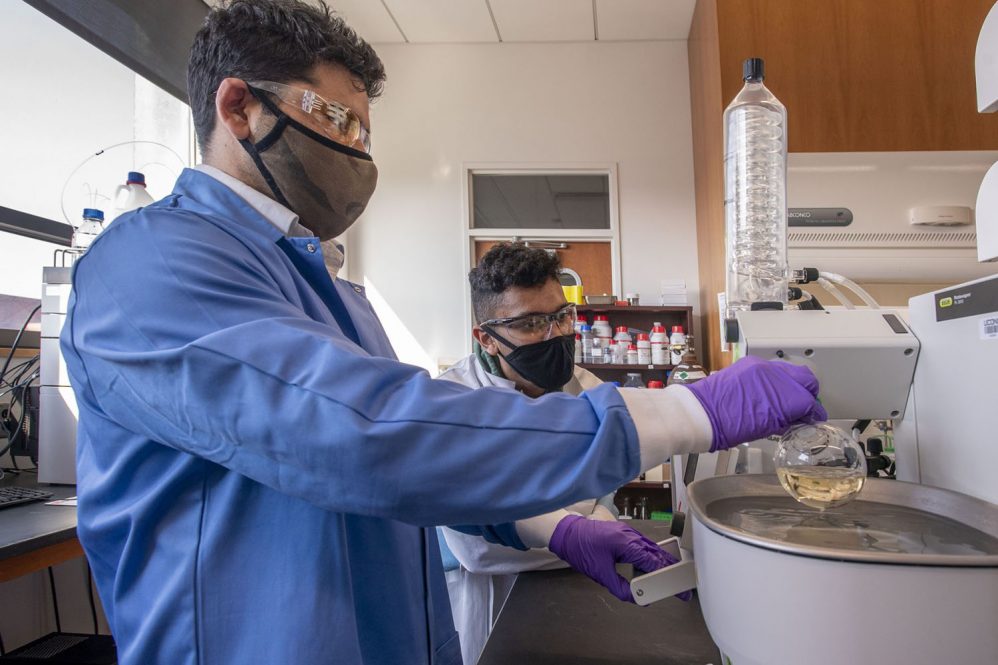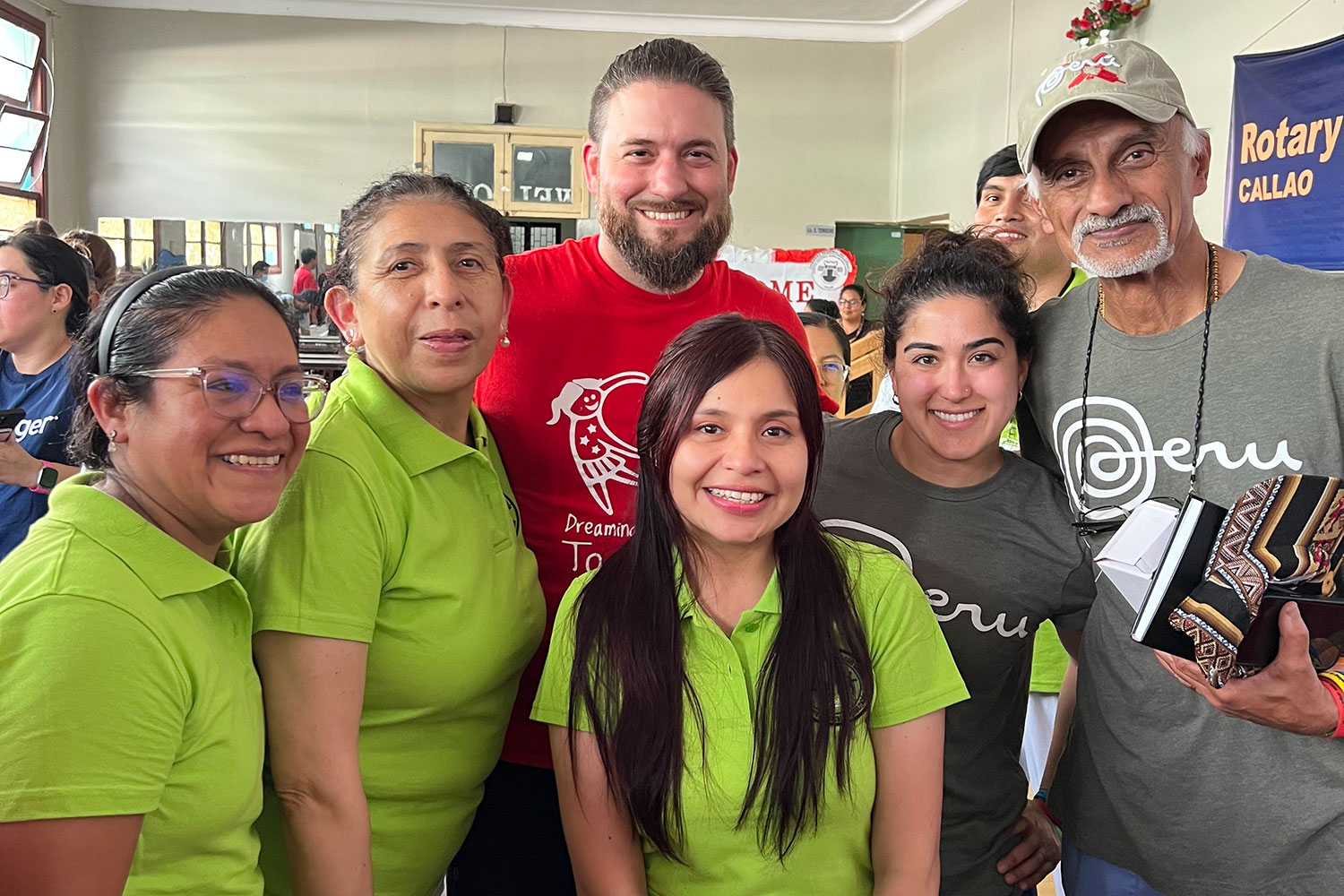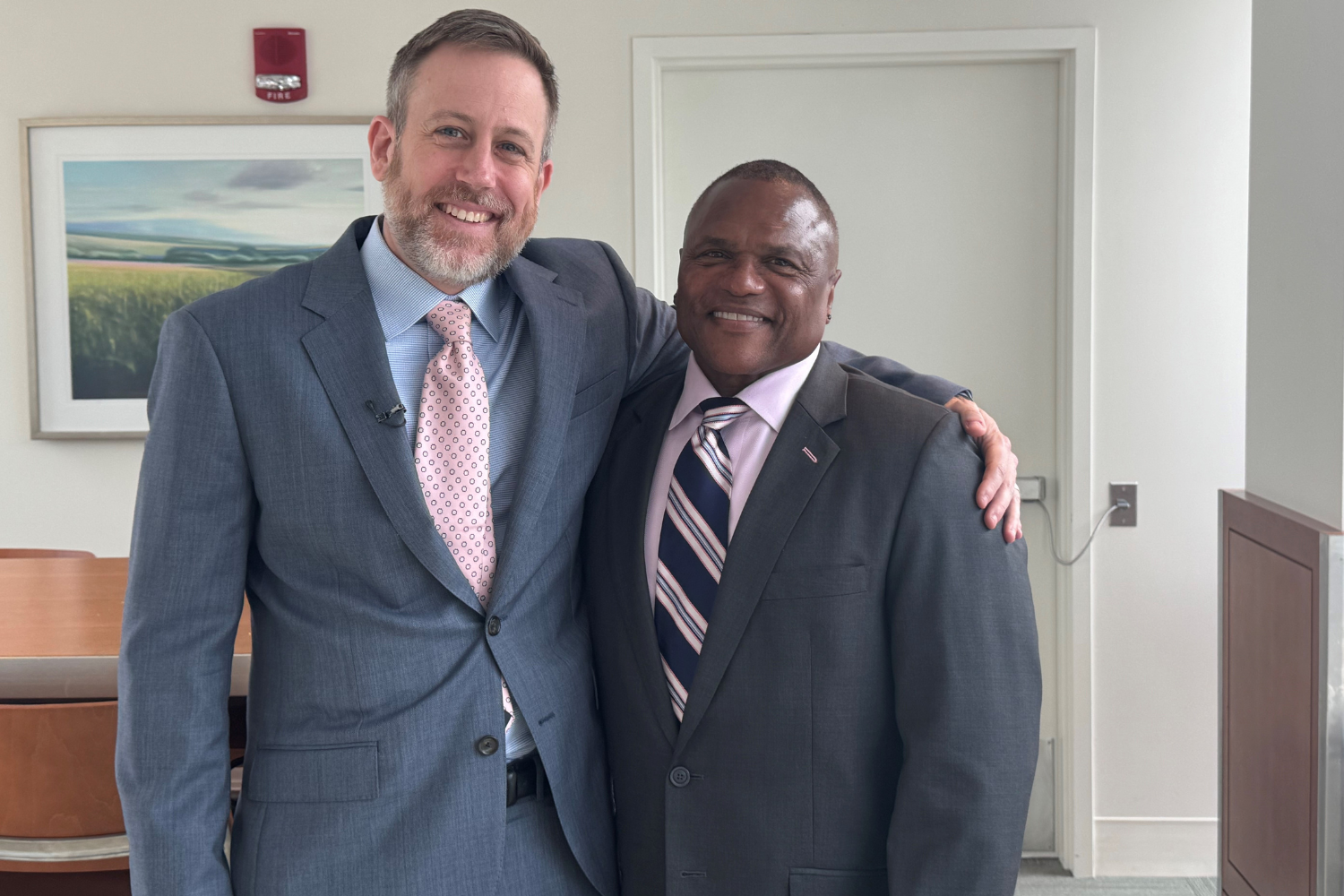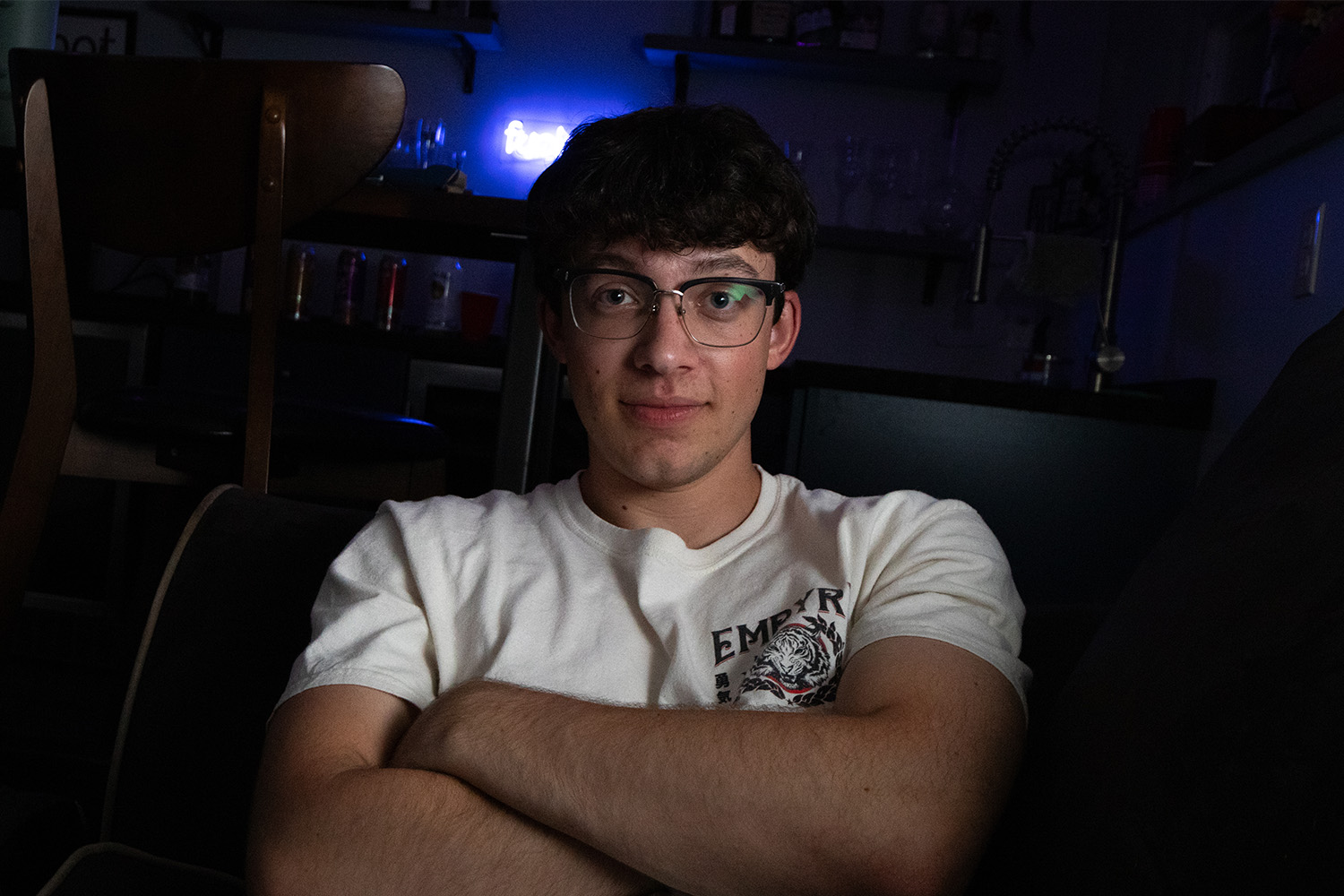Picking a discipline and sticking with it has never been Raman Bahal’s strong suit. But when it comes to fighting cancer, a uniquely interdisciplinary approach may be just what the doctor ordered.
Bahal has a background in chemistry, as well as biomedical engineering and pharmaceutics. His work has taken him from Carnegie Mellon University, where he completed his doctorate; to Yale, where he did his postdoc; to UConn, where he now heads a celebrated lab focusing on gene-targeting therapies.
Bahal’s current projects synthesize his diverse academic experiences into therapeutic products designed to move “from bench to bedside.” As a researcher in chemistry and drug delivery, he understands that expediting new technologies into patients’ hands in the form of effective medicines can be a lifesaving pursuit.
Bahal believes his ability to think across disciplines, which he imparts to his students, is crucial for designing the kind of innovative therapies that will be the next frontier of modern medicine. The process of developing medicine has three disciplines built in already.
“One is chemistry, then another is biology, and then another is drug delivery,” says Bahal. “When we are tackling some disease, we have to think of all those three areas together for effective treatment. So, I think when we work on some of those things together and target genetic material, it can lead to something very promising in the future.”
Curing the genome itself
With the advent of mRNA-based COVID-19 vaccines in recent years, the medical potential of RNA research has attracted public attention. RNA, a molecular cousin of DNA, is the molecule that enables DNA to be translated into the proteins necessary to carry out cellular functions and life. Much of Bahal’s past work focused on targeting disease-causing sequences in RNA, but he’s more recently moved on to a more difficult, riskier target: DNA itself, the blueprint for all the body’s RNA production.
“We are developing the technology that can target the genetic material,” Bahal says. “It’s easier said than done.”
When trying to reach and correct genetic material, researchers face obstacles, such as the fact that DNA is tucked away into the nuclei of cells, where it’s spooled tightly into chromosomes. Synthetic nucleic acids (the natural nucleic acid mimicking reagents that Bahal develops) must traverse both the cell membrane and the nuclear membrane in order to locate the intended gene and take action.
Besides this, researchers like Bahal who are interested in drug delivery face the added challenge of creating a scalable, cost-effective, shelf-stable molecule that will allow the work to truly move from bench to bedside. The Bahal lab has developed in-house mRNA synthesis to enable them to work on stabilization techniques without the need to purchase mass amounts of these molecules, which are expensive.
A technology that can target DNA holds immense promise for treating cancer (especially when it has become resistant to traditional chemotherapy). Once established, it could provide a framework that allows for the treatment of innumerable genetic diseases in the future.
“This is an era of personalized precision medicine,” Bahal says. “You want to think about one disease at a time.”
A targeted treatment for cancer
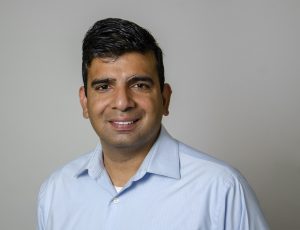
Fighting cancer on the genomic level is challenging. Also challenging is engineering a treatment that can home in on the cancer itself, without affecting healthy systems in the body. Since most of the side effects of chemotherapy are a result of harm to the body’s healthy cells, such a treatment would allow for a less unpleasant and more effective offense against cancer.
Bahal’s lab is working on creating targeted delivery systems for cancer-fighting drugs that will localize to the affected organ—the brain for brain cancers, the liver for liver cancers, and the kidneys for kidney cancers. This idea has already demonstrated its effectiveness in the lab.
“When we talk about targeting, we are not just doing cell culture. This is in the preclinical animal models,” says Bahal. “So, we know we can target these organs selectively.”
Bahal hopes that his lab will be able to get this technology on the market in the near future. He has received an award from the OVPR’s SPARK fund to make this a reality. SPARK funding is annually awarded to projects that demonstrate a compelling approach to an unmet need and have a strong likelihood of leading to a UConn invention disclosure.
A scientific community at UConn and beyond
Bahal is adamant that his work doesn’t exist in a vacuum. He has collaborators at Yale, Harvard, the University of Pittsburgh, and the University of Iowa, to name a few. His lab will often send some of their reagents over to other institutions with experts in certain diseases so that they can experiment with the Bahal lab’s technology in different applications.
He is making waves too at home in Storrs too. Bahal was awarded tenure early, at the end of a five-year assistant professorship rather than the traditional six; he was declared a “rising star” by the National Institute for Pharmaceutical Technology & Education (NIPTE); he was selected for a Charles H. Hood Foundation award; and he received UConn’s Excellence in Research & Creativity: Early Career Award from the American Association of University Professors (AAUP). He has also published manuscripts in several high-profile journals.
Students from the Bahal lab are also prolific, netting many national and international accolades. Most recently, five of Bahal’s students were finalists in UConn’s 2022 3-Minute Thesis (3MT) competition, with one, Sai Pallavi Pradeep, taking first place and advancing to the global competition. Graduate student Shipra Malik (who was a recipient of first place in UConn’s 2021 3MT competition) has also recently received the Steve Nail’s Emerging Researcher Award from the Center for Pharmaceutical Processing Research (CPPR) and a travel grant from the Oligonucleotide Therapeutic Society (OTS).
“Those students put in a lot of effort, and at the end of the day, we want to train these next-generation scientists,” he says. “Not only in terms of lab skill, but also [to] go outside, talk to people about their research, share ideas, share their views, get some good opinions and move on. So, I’m pretty happy about that.”
Bahal is grateful to his students, colleagues, and collaborators who all aid in the fight against genetic diseases. If there’s one thing he’s learned from his discipline-hopping career, it’s that considering a problem from a new perspective never hurts—and his research community provides the perfect environment for doing so.
